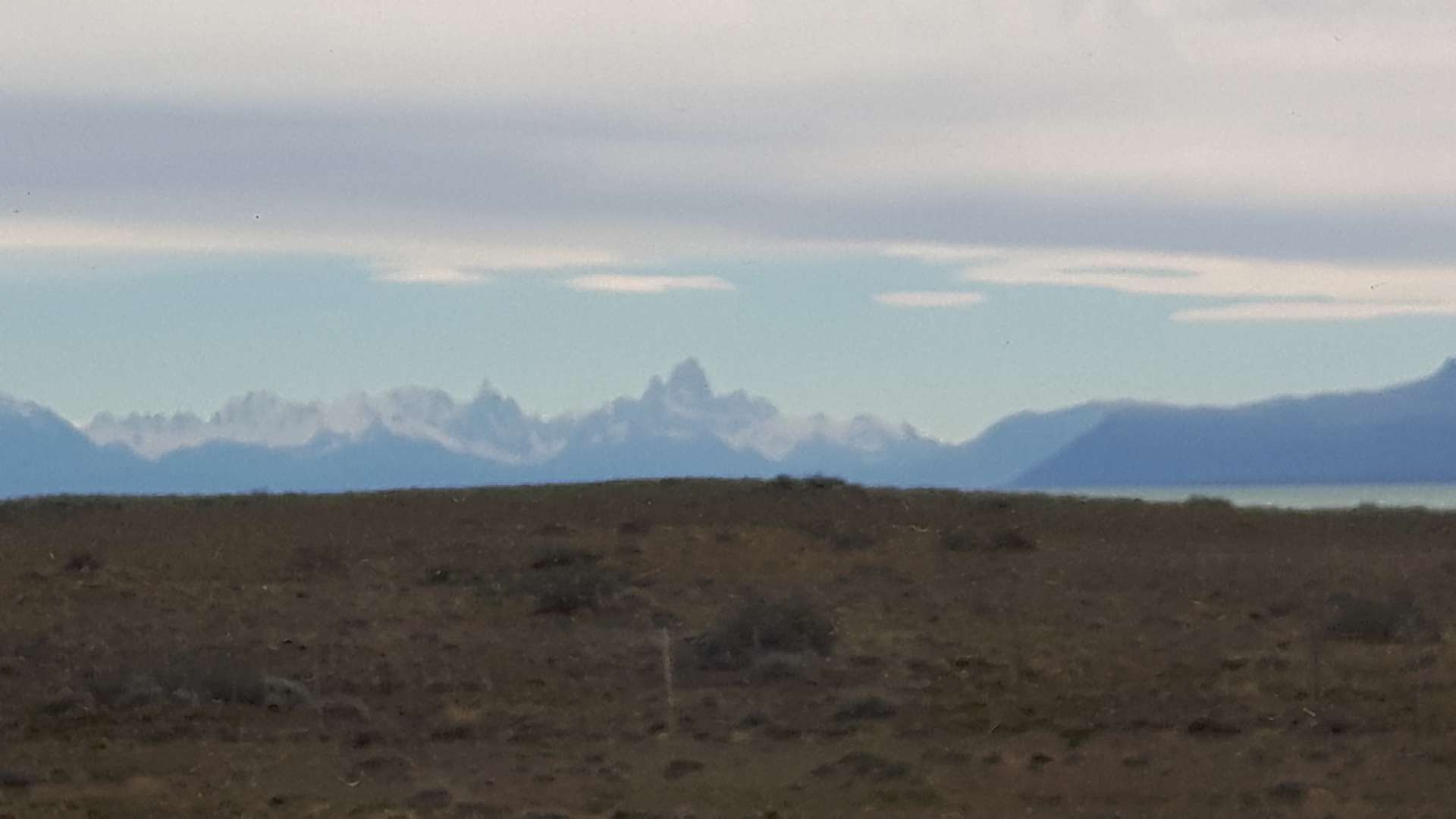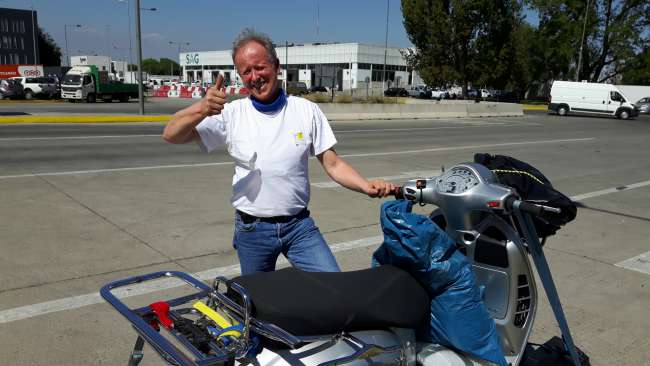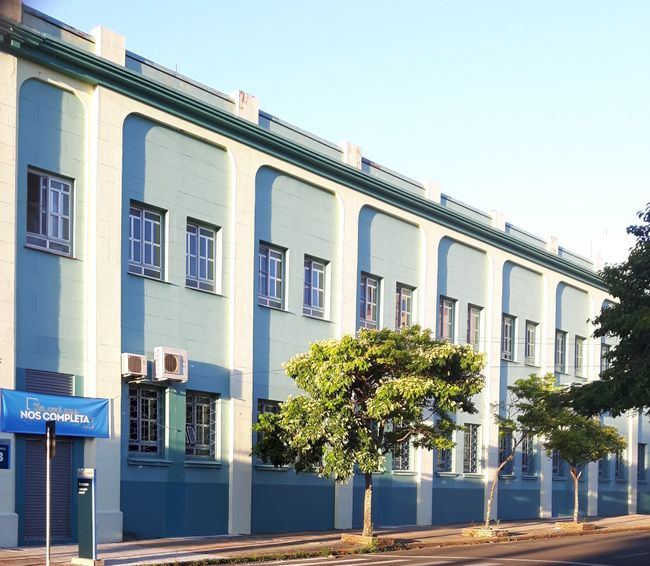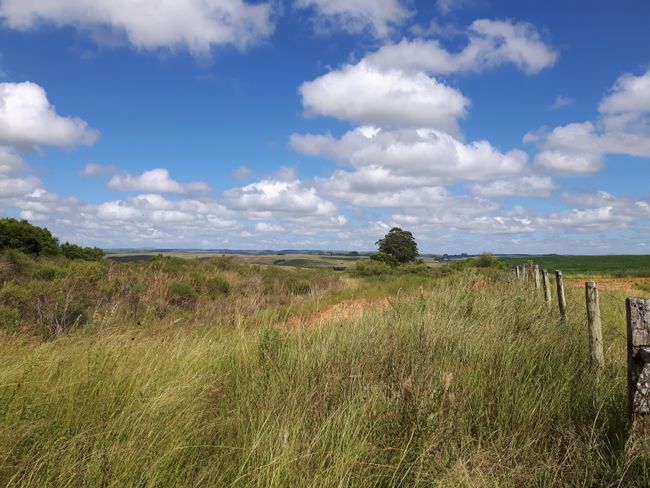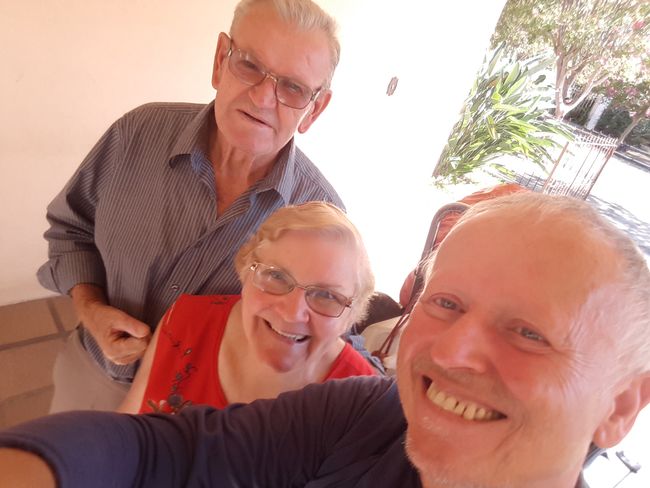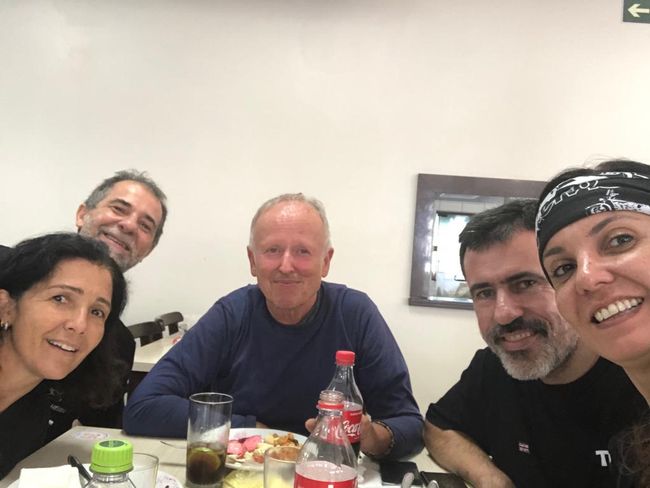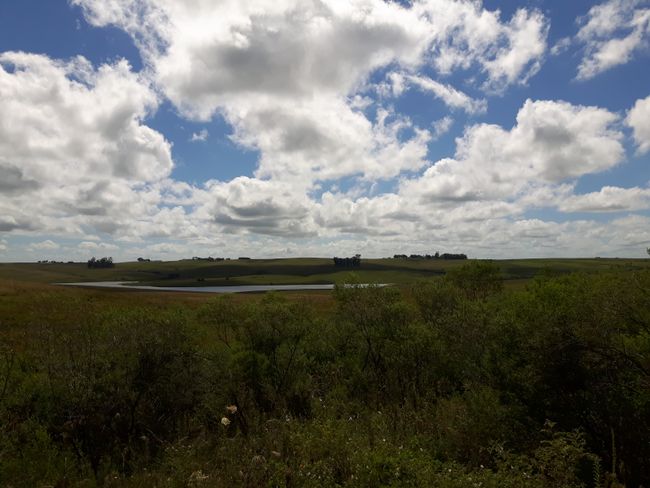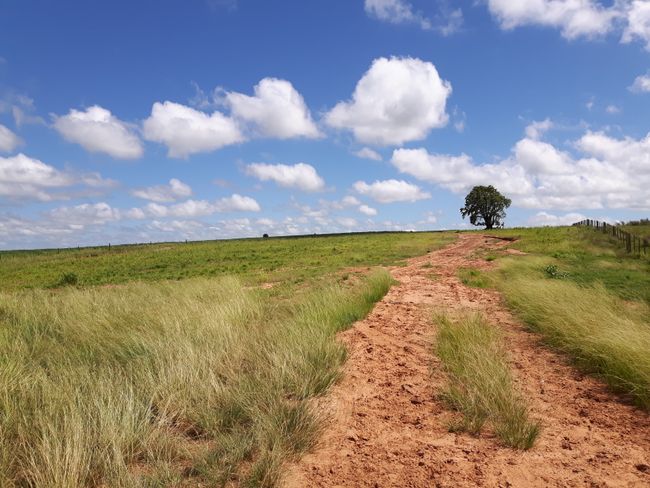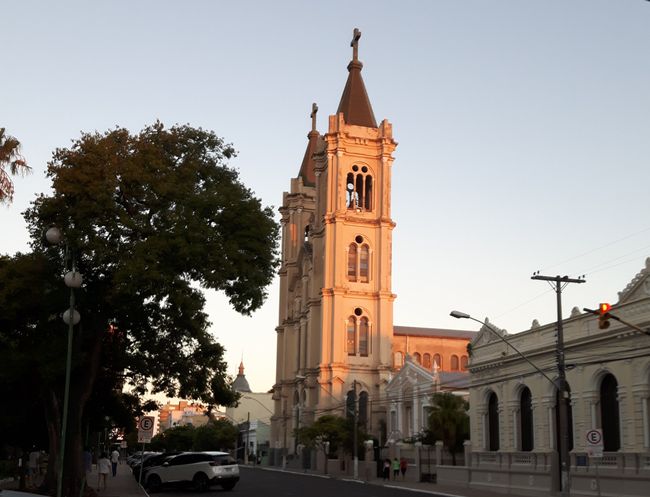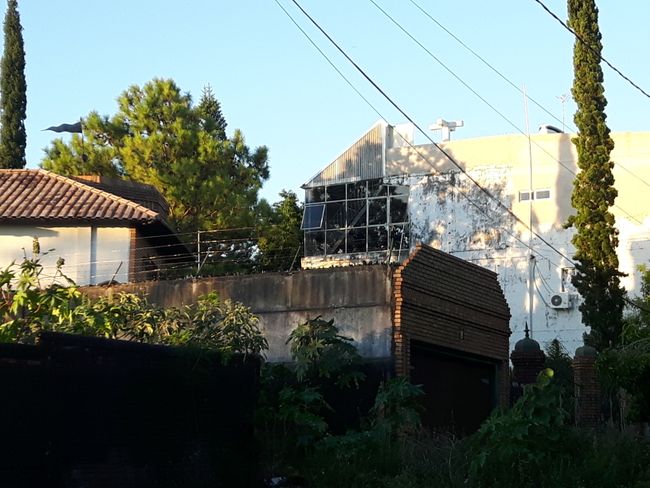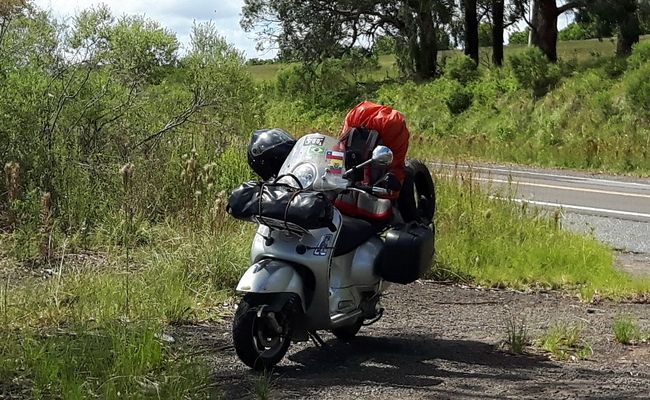from 16.02.: Urugaiana / RS
प्रकाशित: 17.02.2019
समाचार पत्रिका के लिए सदस्यता लें
16.02.:
all night long I am accompanied by a heart-wrenching meow. Not to be confused with the meowing of a cat advertising the cat world, but rather desperate and helpless. I imagine that she is stuck in a tilted window, but I'm too lazy to go searching. Besides, I would have reminded all the dogs on the street of their duty and made many enemies. The cat's crying doesn't stop, which reassures me. If she still has so much strength after hours, then she is not in a life-threatening situation. I fall asleep with the comforting feeling that cats have nine lives.
I suspect the cats of Edy and Isone, but this morning I hear that they are allowed to sleep inside the house.
I am once again treated to a German breakfast to conclude my stay with Edy and Isone Schütz. Edy, the hostel owner, keeps me company again, but then the domestic duty calls: he is responsible for washing their breakfast dishes. There are no exceptions.
Isone, his busy wife, who ensures that everything is in order and can certainly assert the required authority, shows me a Christmas card from 2003. It was during a summer festival where they coincidentally met Germans from near Bremen (Syke). It must have been a lively evening. The Christmas card is already slightly yellowed and has passed through many hands. Edy, who has already completed his duties at lightning speed, puts the card back on the shelf of the wall unit, but Isone wants me to read the text and tell her the place it comes from. Both listen thoughtfully and are pleased with my reaction when I say: that's near Bremen!
Unfortunately, I didn't find out if they have children. Although there is a picture of two uniformed young adults on the wall, but Edy has so much to tell that I forget to ask who they are.
Also here, many question marks in their faces, how can I be traveling without my family?
When we are alone, Edy cannot help but remark that I must be a rich man to be able to take such a long journey. My response: when I come home, I will be a poor man... he grins.
It was a short encounter, but a nice one.
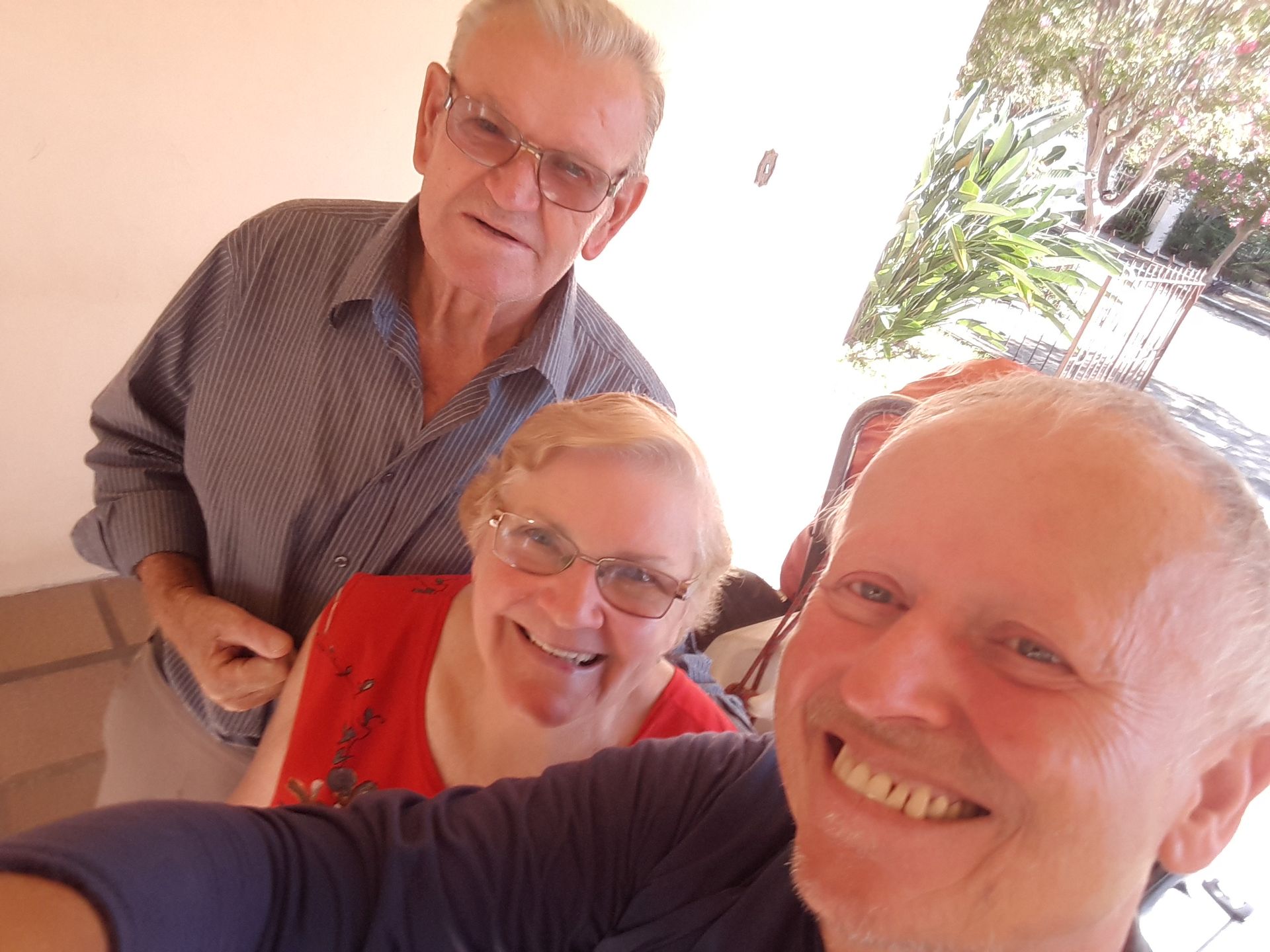
I cannot say goodbye without a selfie of the three of us
The gray of yesterday's day has given way to a deep blue sky. The wind conceals the true temperatures, but it is still relatively early and I am glad that I have layered two t-shirts on top of each other.
I leave Sao Gabriel with a mix of sadness and joy. I would have liked to learn more about the two hosts, especially Isone, who was quite suspicious at the beginning but became more and more trusting. On the other hand, I am glad to leave this oppressive city of Sao Gabriel and finally be 'on the road' again, feel the wind in my face, and drive towards the next destination.
BR 290 requires the highest concentration. It can only be driven by weaving through the worst resistance of the road surface. But I feel safer than in the previous weeks and months and make good progress. The wind is at my back again and the pampas stretches out around me. As far as the eye can see, there are meadows, pastures, and small ponds. Above me, there is an endless sky with fluffy clouds being driven forward by the wind. I struggle to catch up with their shadows moving on the road in front of me.
Again and again, I would like to pull over to the right and take photos of this wide landscape, but I prefer to wait for a passing lane to be able to stop safely. I see cattle scattered over kilometers and sleek horses grazing leisurely. Gauchos, who keep the herds together, I do not see in action. I only notice - already in Sao Gabriel - that instead of sneakers or flip-flops, knee-high suede boots are worn. The wide trousers tucked into the shafts. And rugged, leathery, and sunburned faces that are no longer in their forties. Actually, the cattle here is much better off than the black-and-white ones in the North German lowlands. With us, they have to spend their lives in dim stables - regardless of winter or summer.
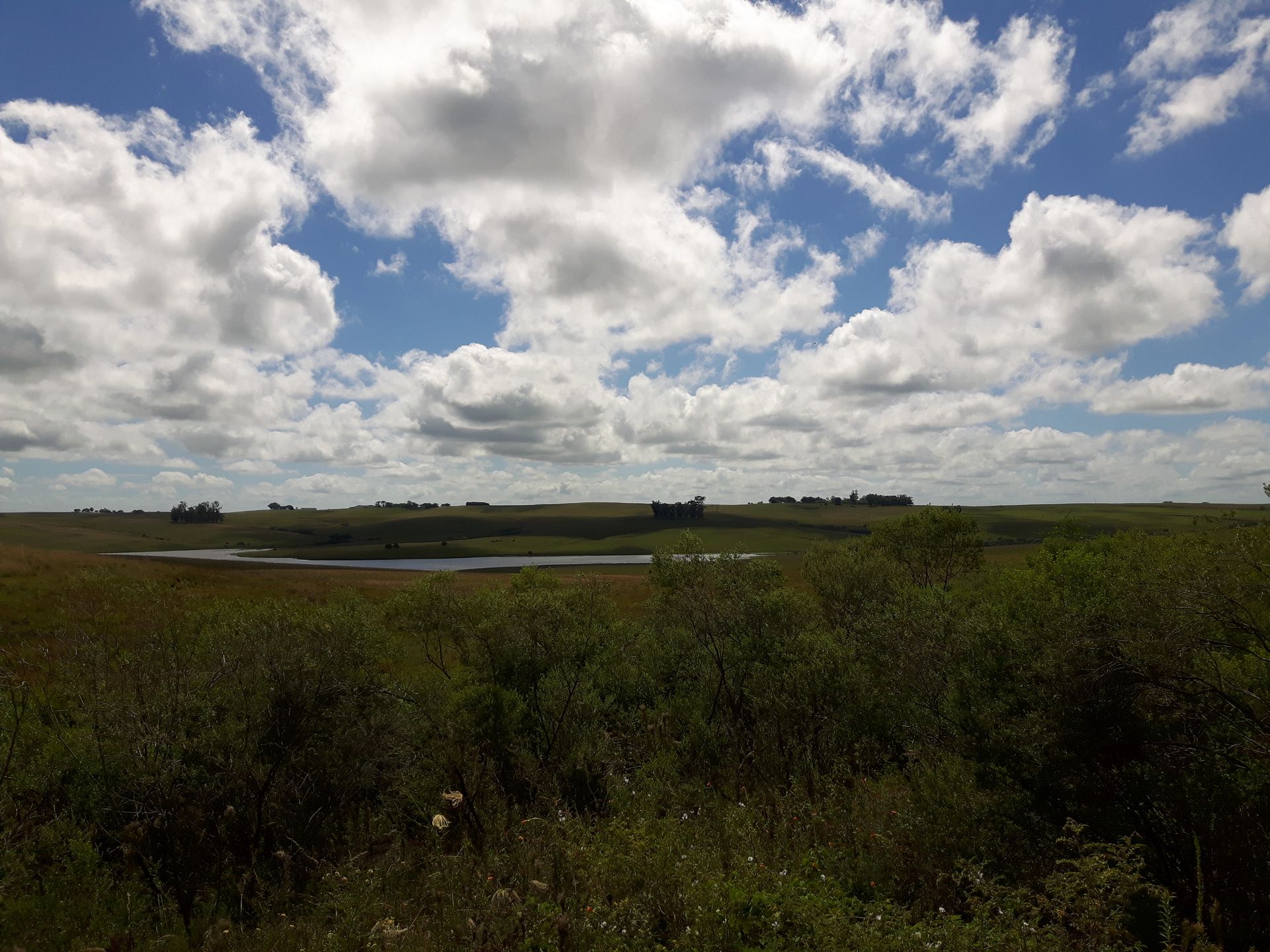
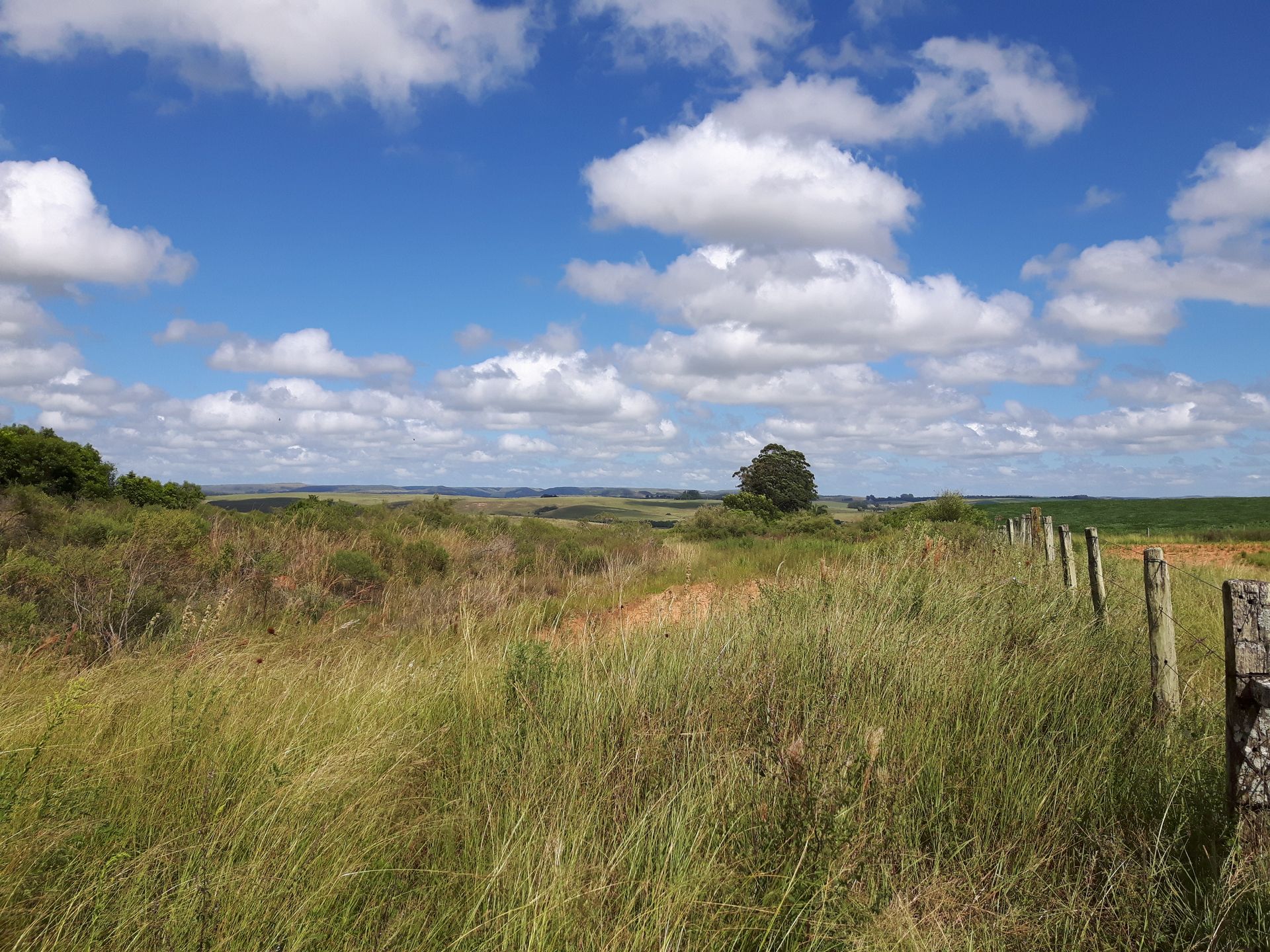
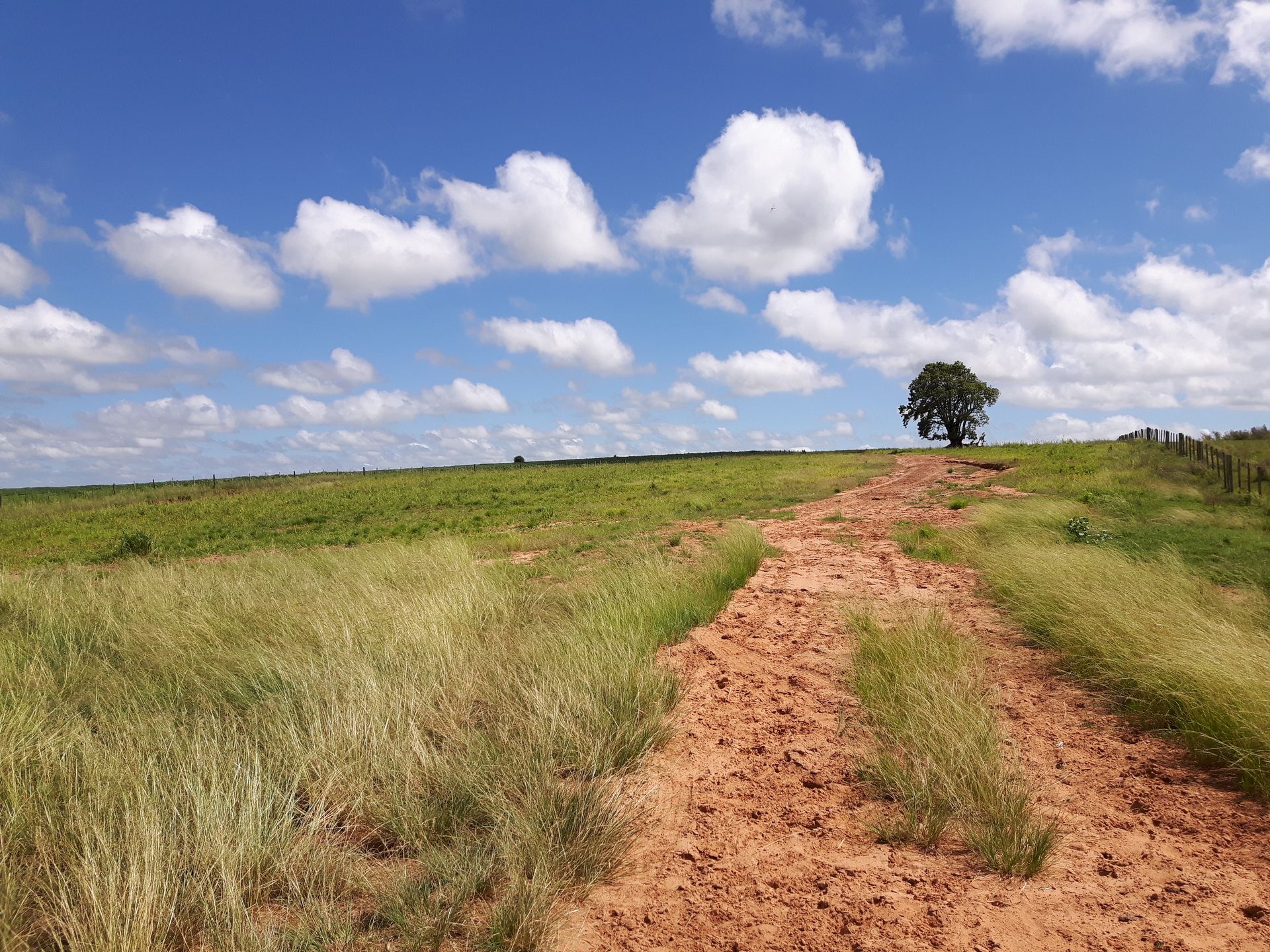
The fuel gauge requires a decision: wait for a gas station or refuel now after an enjoyable cigarette break. However, the GPS tells me that a rest stop is expected after 4 km.
The Vespa gets a great reception. As soon as the engine is turned off, the first person - an Argentinean whom I can finally understand - comes forward, holding his newborn son in his arms. Adventure gleams in his eyes and I'm not sure if, given the choice between the baby or the Vespa, his offspring would spontaneously have been his first priority, especially since his wife is already impatiently calling for him.
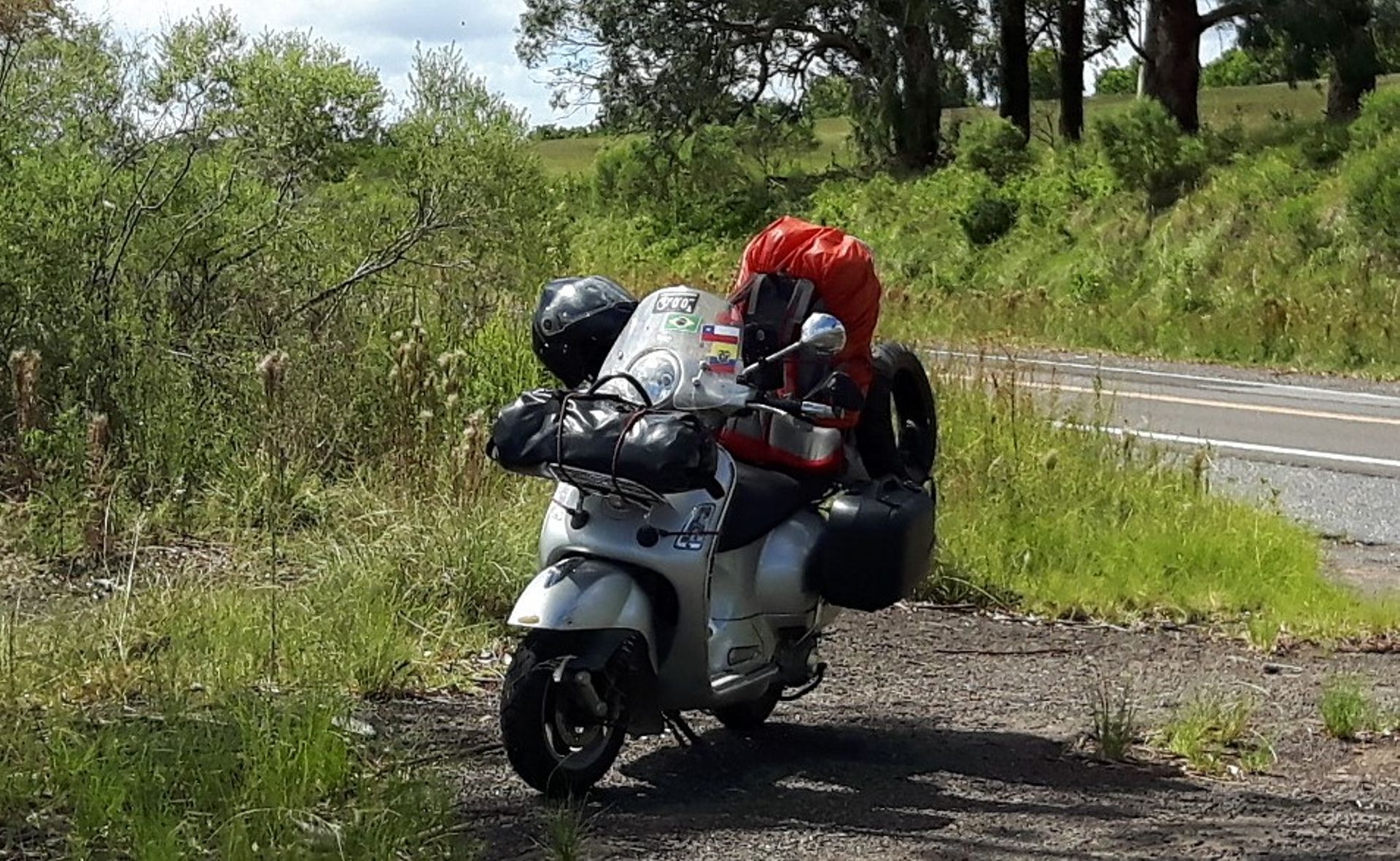
and so that she can't say: the prophet is nothing in his own country, here she gets a place of honor.
While refueling, two couples from Porto Alegre arrive with brand new BMW motorcycles. One couple immediately tells me about Marburg, Berlin, and Leipzig. He is a biochemist and has given lectures at German universities. She had business in Leipzig. They rave about Cologne and the Beethoven House in Bonn, about Hamburg, Berlin, and Munich. We have lunch together in the cantina. All four speak English well and are on their way to Bariloche. A ride of over 2,000 km. They only have two weeks of time in total.
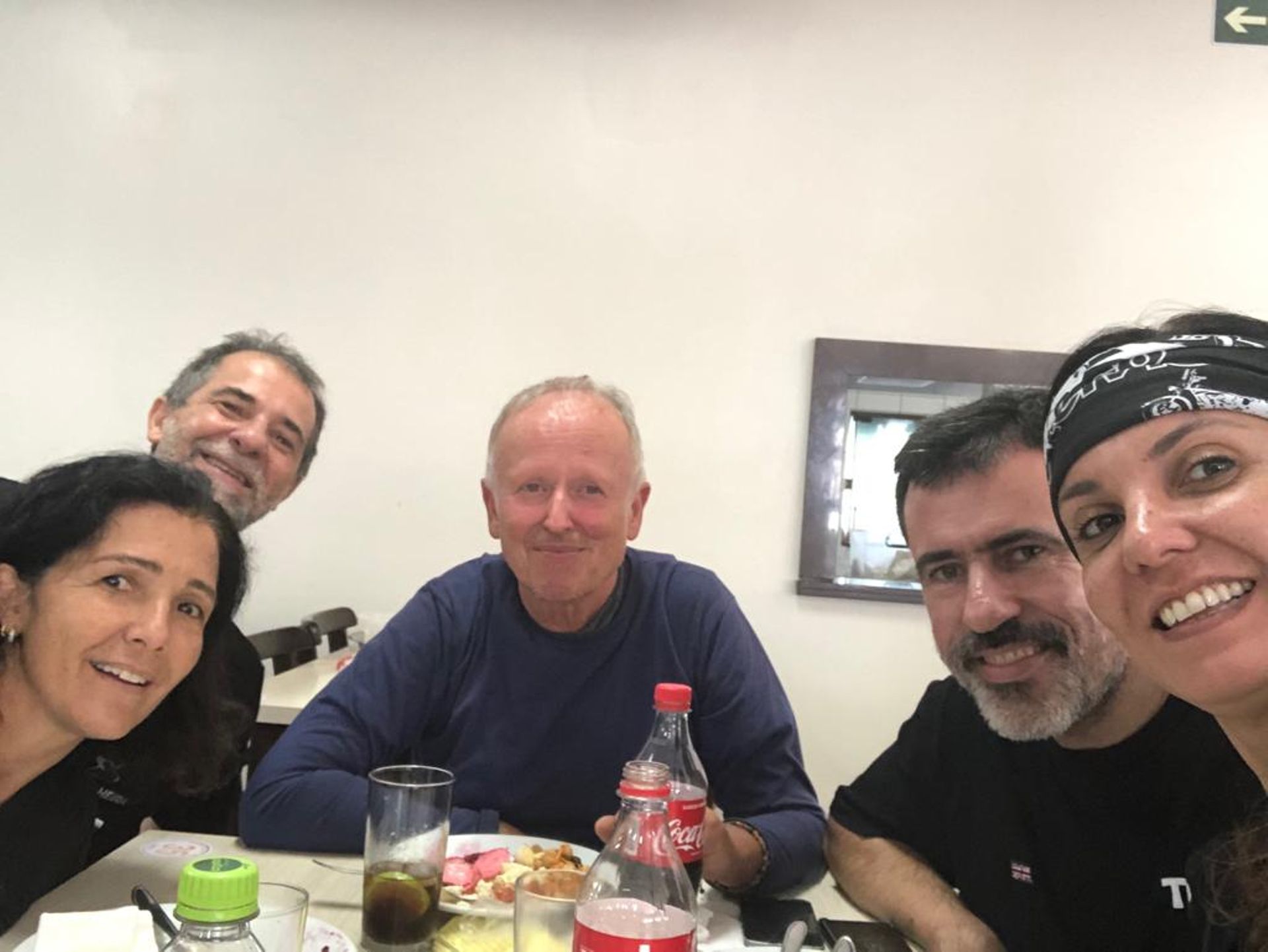
got good tips for Uruguay. No kids, no babies, no industry. Exodus of youngsters, European prices, and many old cars and Lambrettas. But a beautiful country!
I have completed the first half of the 320 km. Although there are moments when I simply cannot sit anymore, the GPS promises that I will be in Urugaiana in one and a half hours. The pampas is almost uninhabited. No villages and no speed bumps forcing me to slow down, no traffic, and a consistent tailwind. I remember my journey through the Atacama Desert and through the Andes. I was also traveling westward and as the time progressed, the sun moved more and more into my field of vision and made safe driving more difficult. Same today, and I'm glad that from next week on, I will only be traveling south.
Urugaiana has over 100,000 inhabitants and is located on the border river Rio Uruguay. When I pass the city sign, I am already surprised that I don't see a skyline with high-rise buildings, that there is hardly any traffic on the streets, and later, when I reach my hostel, a deep Saturday calm surrounds me. In my street, Brazilians sit on their colorful folding chairs on the green strips under shady trees in front of their houses and watch the fairly sparse life pass by.
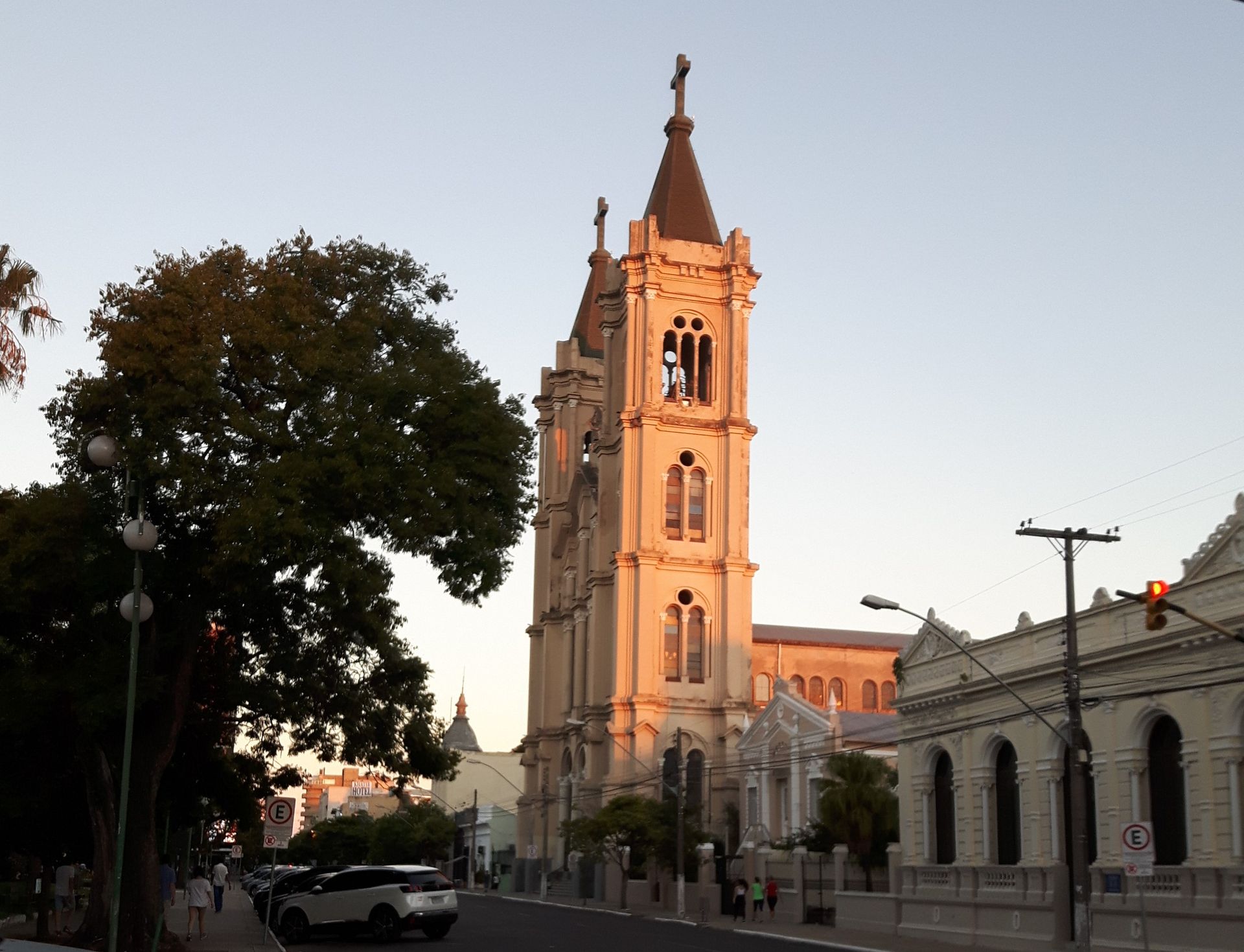
on my way to the evening beer in the city - the church towers in the light of the setting sun
Before I find my street, I get quite a scare. It can't be that the people from booking.com don't somehow get an idea of the hotels and guesthouses they are arranging. My GPS supposedly leads me to my hostel street, but on the left and right, I only see shanties and faces looking at me suspiciously. There are no street signs here either. I make a loop and then fortunately realize that I turned one street too early. Here too, I experience a kind of contrast program. On one side, poverty and simplicity, and on the other, well-maintained front gardens and prosperity.
My hostel owner occupies a multi-story house and rents out rooms on the ground floor. She lives in the two upper floors and allows me to go to the rooftop terrace via her balcony. From there, I would have a great view of the Rio Uruguay and the bridge leading to the Argentine side. Including a sunset. I'm not sure if I understood her correctly, but she says: feel free!
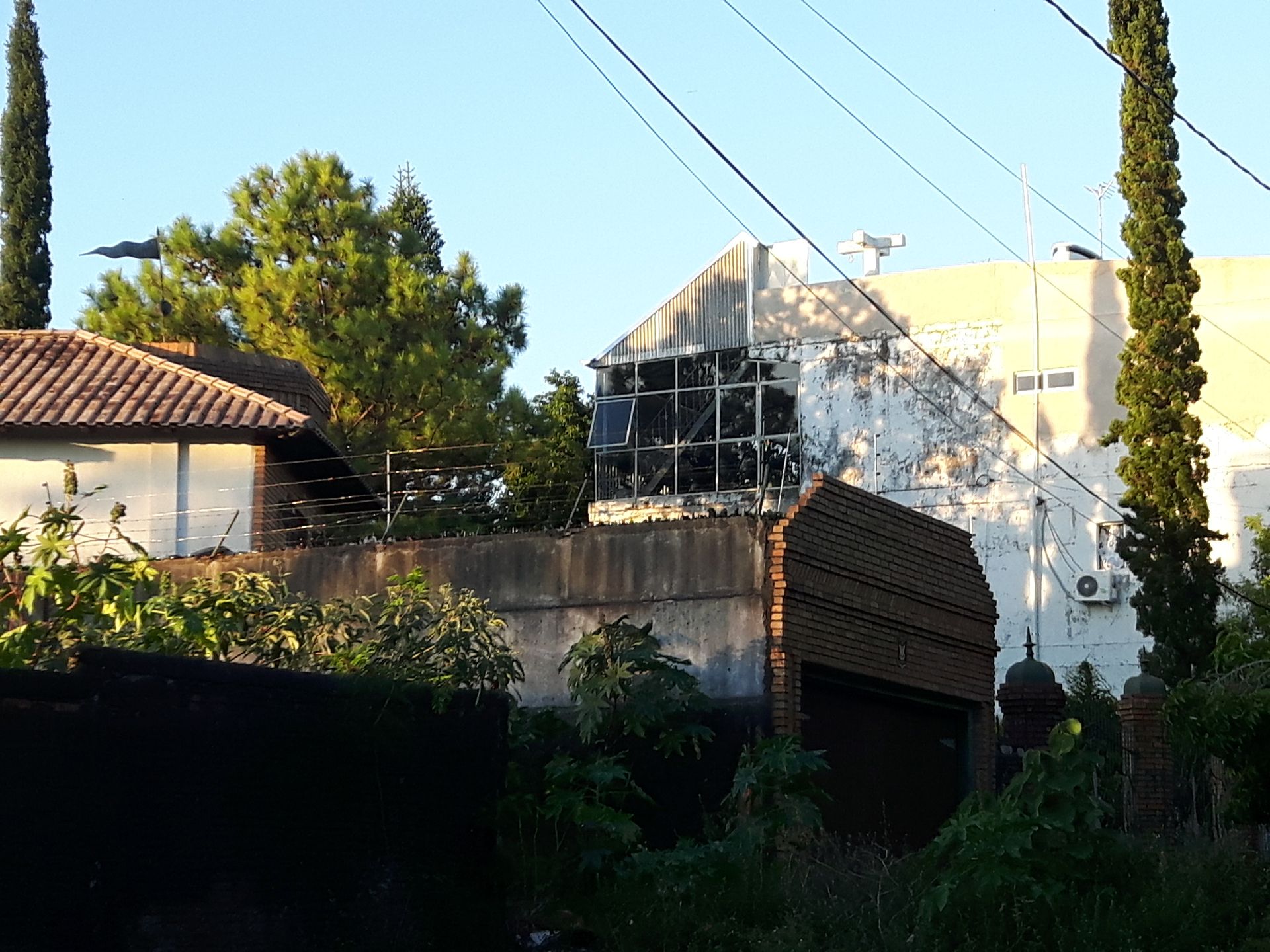
She is a painter and her staircase shows her artwork, she works with oil paints and is both representational and abstract and delicate with ink and a pen. Her apartment exudes coziness and individuality. Her paintings hang everywhere, two comfortable sofas, books and magazines scattered, floor and wall lighting. And potted plants everywhere.
I am already looking forward to a twilight drink on the rooftop terrace with a view of the slow-flowing Rio Uruguay.
17-20.02:
For four days, almost nothing happens. The thermometer climbs to 35, 36, and 37 degrees. Even my painter is groaning under the heat. That reassures me to some extent. But not much more. Going outside is out of the question. Energy levels drop as the temperature rises.
In the evening, when it has 'cooled' down and reached 28 degrees and I return from my city tour, only a shower can help.
Urugaiana is a beautiful city. The wide streets are lined with trees that span the broad sidewalks and provide at least some shade, there are mostly two to three-story houses in colonial style, a theater with a neoclassical facade, but also single-family houses with tasteful architecture and well-kept front gardens.
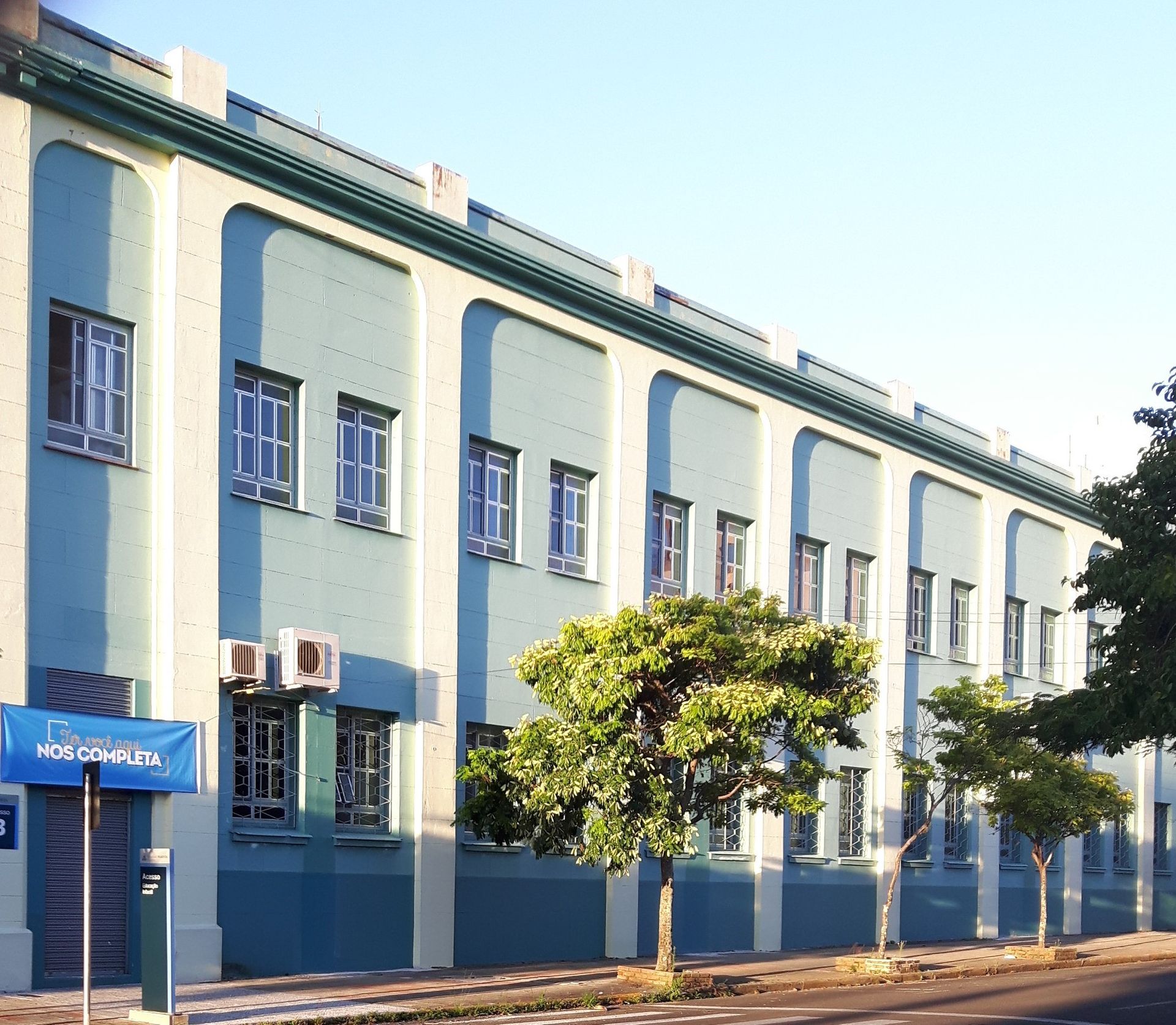
wide streets and sidewalks and beautiful buildings
I frequently encounter people sitting in front of their houses, chatting with their neighbors. And there are caballeros riding along the streets at a fast gallop, but also horse-drawn carriages used for daily work.
समाचार पत्रिका के लिए सदस्यता लें
उत्तर
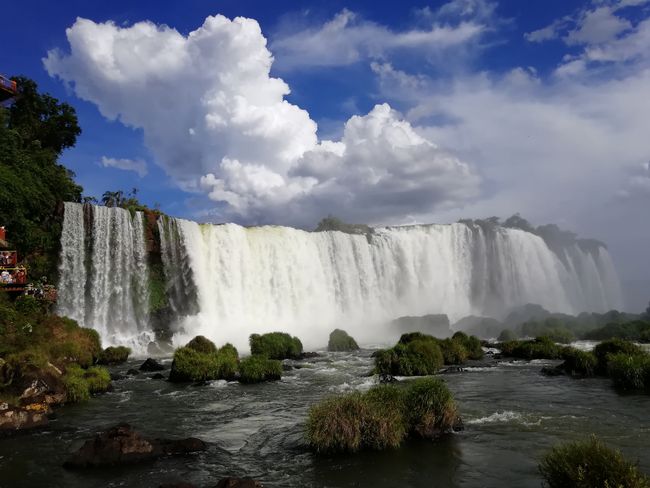
यात्रा रिपोर्ट ब्राज़िल
